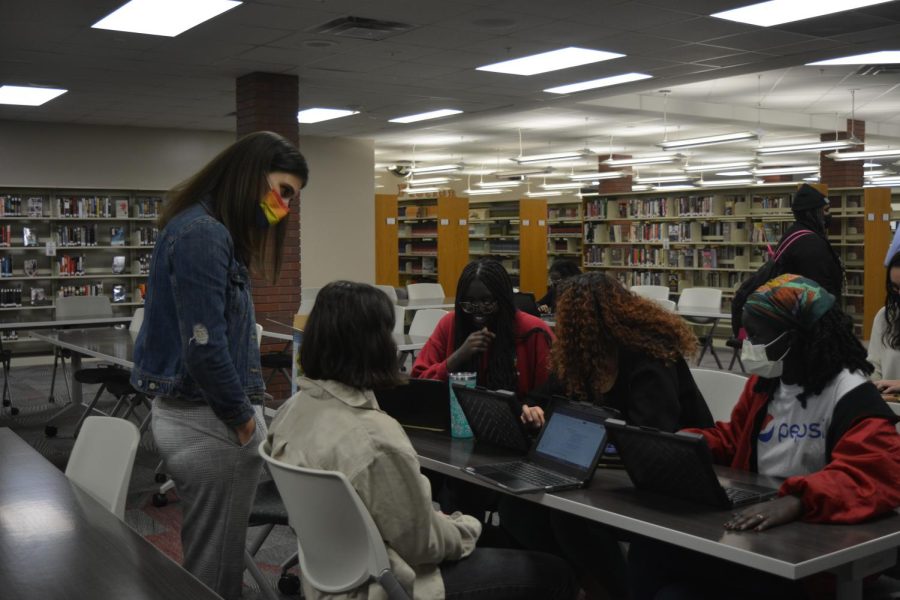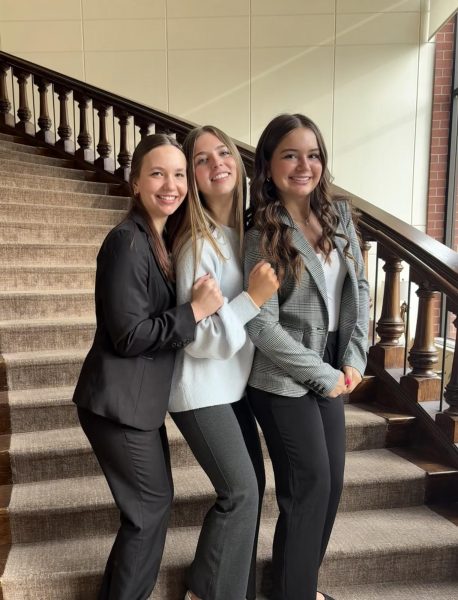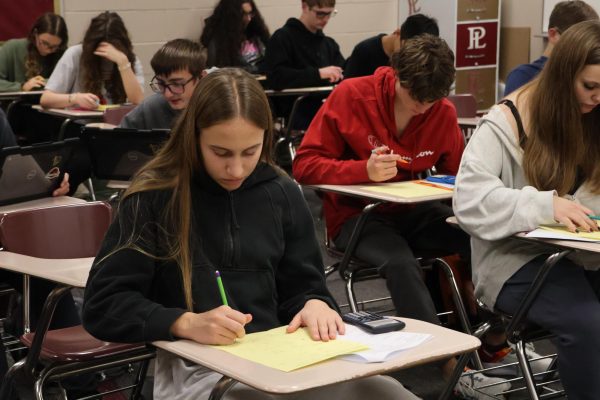Papio Proud Listening Session
Papio Proud hosts their second podcast listening session of the year.
On Monday, April 4, Papio Proud held their second podcast listening session with the staff in order to discuss racism and discrimination within schools throughout America, so that they can be prevented in PLHS.
Oftentimes, a student’s experience with racism may be overlooked due to an adult’s lack of information on how to solve it. Teachers might not even realize what is happening in front of them is an act of racism. These sessions are meant to help teachers understand the students’ perspectives and how they can help.
“Teachers can realize that there are students in the school who do say racial slurs and are racist, homophobic, transphobic, all of it, through these sessions,” junior Alaina Andres said. “They can learn how to stop that behavior and allow students to feel safe.”
Talking about racism is one of the quickest ways to educate and prevent those instances from happening again. No one can learn if no one is willing to share, but luckily PLHS has students willing to tell their stories.
“Hearing [one] girl’s story, it was just another concrete illustration of what someone really went through, that was very insightful to me,” Spanish teacher Katie Wittrig said. “Any time I can gain insight on what students are feeling, I think it makes me a better teacher and a better person.
The teachers aren’t the only ones learning something in these sessions; the students are learning from one another’s experiences and observations.
“It helped me recognize that there is a downward trend of people supporting the Black Lives Matter movement,” Andres said.
Students should be able to have trusting relationships with their teachers. These discussions are meant to encourage teachers to be supportive of their students, especially in times where they may face racial discrimination.
“It’s important to make minority students welcome in the classroom,” Andres said. “No matter what your background is, you should be able to feel safe in a classroom.”
Hopefully, through these sessions, students will feel more comfortable reaching out to a teacher and teachers will be more informed about how to help.
Emma Leslie is a senior, has been on staff for two years, and is the News Editor. She also is a part of the cross country team, National Honors Society,...






